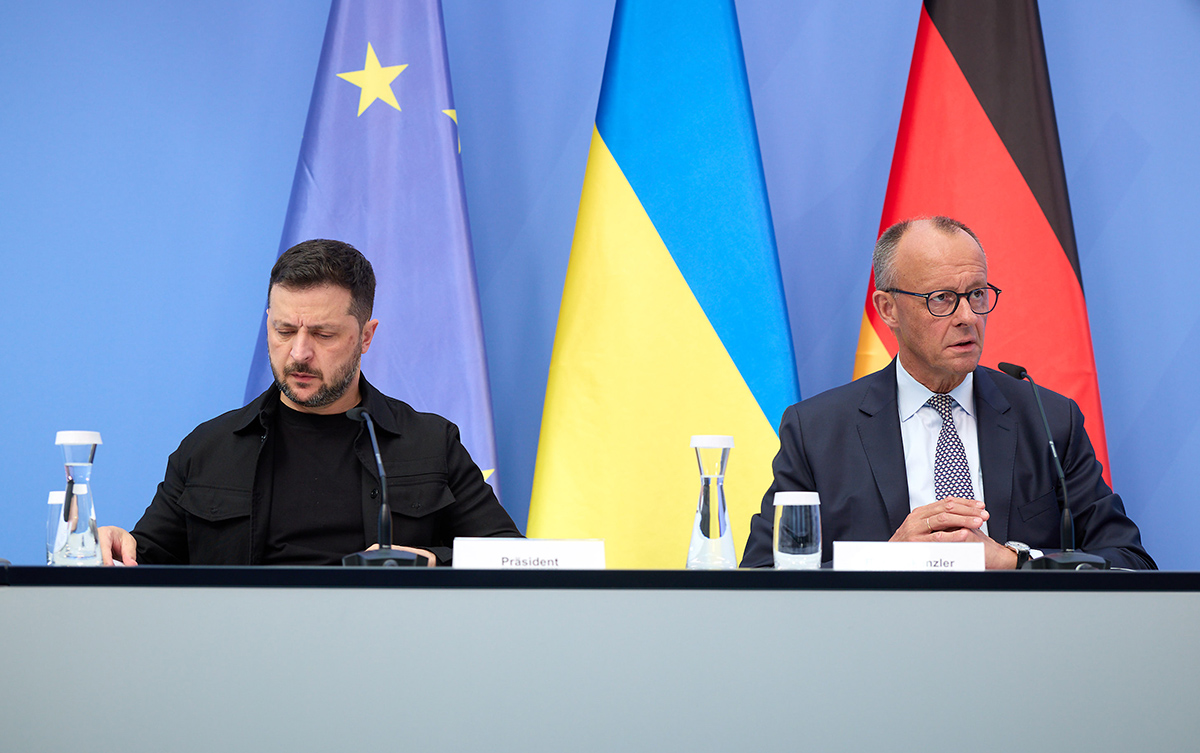German Greens Criticize Merz Coalition for Blocking €4.5 Billion Aid to Ukraine

The German opposition party, the Greens, has sharply criticized Chancellor Friedrich Merz's coalition for refusing to allocate an additional €4.5 billion in military aid to Ukraine, calling on the government to increase funding for air defense.
The Gaze reports on it, referring to Politico.
The Greens insist on increasing spending on air defense, citing ongoing Russian attacks on Ukrainian cities.
According to the report, this would increase Berlin's spending on Ukraine from €8.26 billion to €12.76 billion this year.
After a series of strikes on civilian targets in Kyiv, Green budget lawmaker Sebastian Schäfer accused the leaders of the Christian Democratic Union (CDU) and Social Democratic Party (SPD) parliamentary groups of failing to deliver on their promises to provide additional air defense.
“With the 2025 budget we could provide extra air defense. Unfortunately, Jens Spahn (CDU) and [Matthias] Miersch (SPD) reject it — despite their promises in Kyiv a week ago,” he stated.
The Greens also emphasize that without additional air defense systems, Ukraine risks losses on the battlefield, especially given the reduction in support from the US.
At the same time, representatives of the coalition, particularly from the SPD and CDU, reject the proposal as a political stunt.
“This Green proposal is a classic opposition stunt for show, because the money could not be disbursed by year’s end,” said Andreas Schwarz, an MP with the SPD.
Schwarz stressed that the additional funds cannot be used this year without violating the principles of budgetary credibility.
“It sounds nice, reads well, but has nothing to do with reality. Had we passed it, we would have violated the principle of budgetary truth and clarity,” he added.
Overall, Germany is Ukraine's second-largest military sponsor after the US, having allocated €16.7 billion since the start of the war, while the US has provided €64.6 billion.
Germany's 2025 budget provides for approximately €4.2 billion in additional military aid to Ukraine, as well as €50 million for medical care for wounded Ukrainian soldiers. The rest of the funds are earmarked for humanitarian and reconstruction aid.
In addition, the Merz government has begun reforms of the constitutional debt brake, increasing defense spending to over 1% of GDP and creating a new €500 billion infrastructure fund with borrowing restrictions.
The Gaze reported earlier that Germany is preparing to play a leading role in post-war security guarantees for Ukraine by focusing on strengthening its air defense and military capabilities while avoiding commitments to deploy German troops.